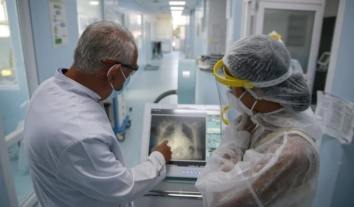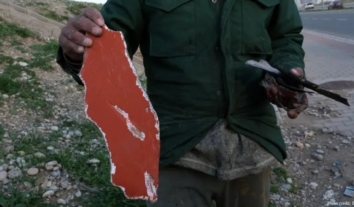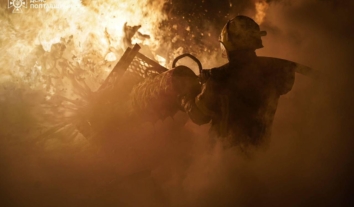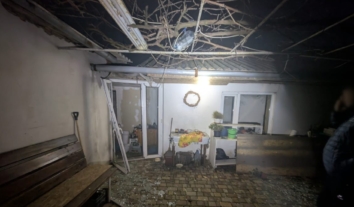Russia’s forced demographic changes in Crimea violate international law – Amnesty International
Russia’s military operation to seize the Crimean Peninsula displaced Ukrainian citizens, according to a report by Amnesty International, marking the 10th anniversary of the occupation of the Crimean Peninsula.
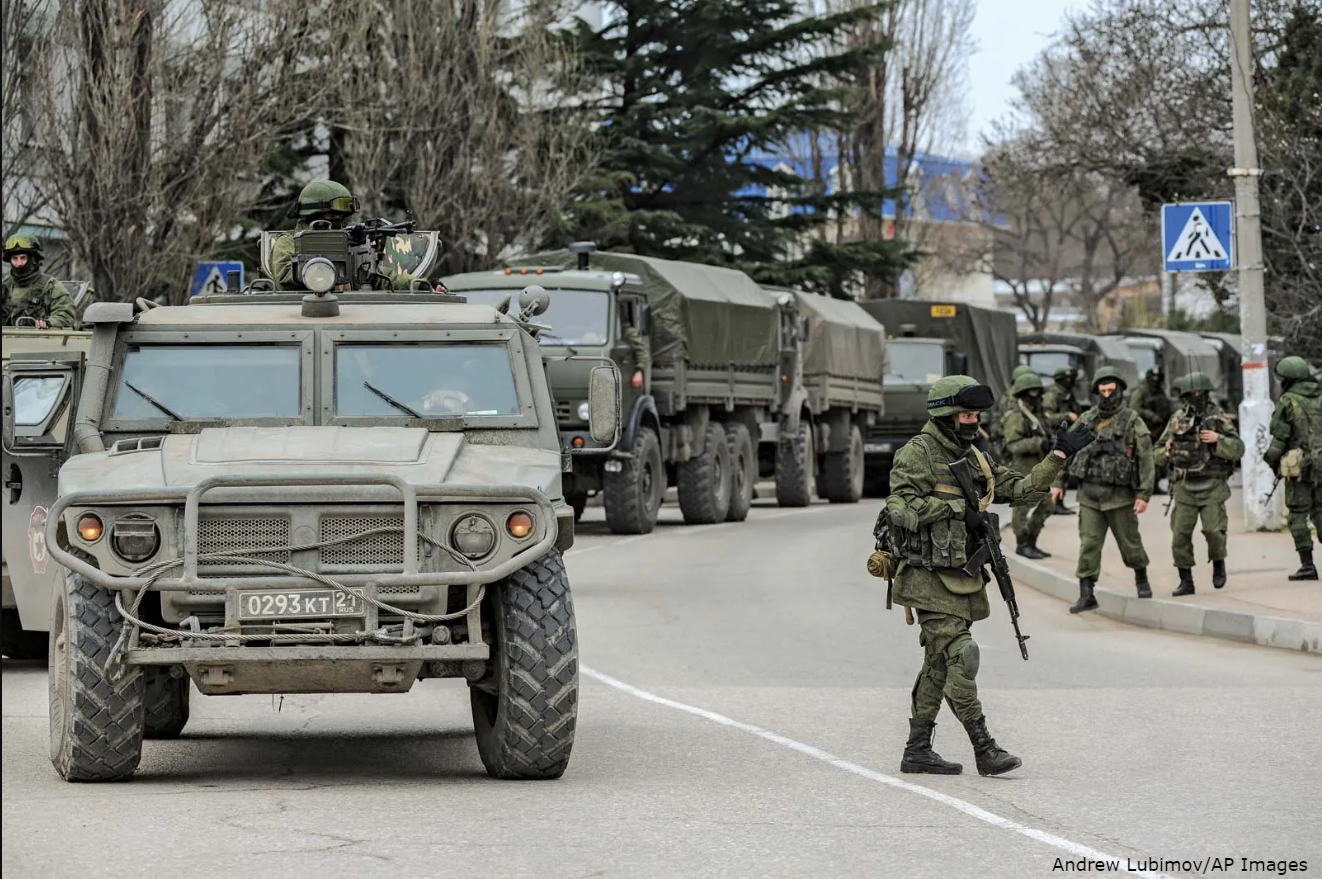 Russian soldiers accompanied by military vehicles patrolling Sevastopol, Ukraine, on March 1, 2014, a few weeks before Russia annexed Crimea and the city
Russian soldiers accompanied by military vehicles patrolling Sevastopol, Ukraine, on March 1, 2014, a few weeks before Russia annexed Crimea and the cityA 2001 census conducted by Ukraine found that 2,401,209 of the 125 ethnicities resided on the peninsula. With the onset of Russia’s annexation of Crimea in 2014, ethnic Russians made up the largest group of residents, at 60%, followed by Ukrainians (24%) and Crimean Tatars (12%).
However, a Russian census in September 2014, not recognized by Ukraine, showed an overall population decrease but an increase in the Russian population to 65%, while the Ukrainian and Crimean Tatar populations dropped to 15% and 10%, respectively. An unrecognized census makes it difficult to verify the Russian Federation’s reported results.
While many Ukrainians did leave the peninsula following Russia’s occupation, Ukraine’s State Emergency Service estimated their number at approximately 20,000 in 2017. Much higher estimates by Ukrainian NGOs put the upper limits of the figure at between 50,000 – 60,000 people.
Even these higher estimates would not fully explain the Russian authorities’ stated figures concerning the reduction in the ethnic Ukrainian population of Crimea, Amnesty International remarked. The disparity in the figures may be explained by the Russian authorities’ deliberate underestimation of the size of the ethnic Ukrainian population in Crimea, a considerable number of ethnic Ukrainians now choosing or feeling compelled to identify as Russian, or a combination of both.
In 2014, Russia’s illegal annexation policy mandated that all permanent residents of Crimea were Russian citizens unless they formally opted out within a month of the annexation. Russian authorities issued them Russian passports en masse.
Those who refused Russian citizenship faced restrictions as foreign nationals requiring legal permission to stay. Following the 2022 full-scale invasion, Russia introduced a decree that offered “fast track” citizenship for residents of Crimea and other Ukrainian territories it occupied. This move resulted in 57,377 individuals obtaining citizenship there in 2022, an increase of 492% compared with 2021.
The decree has been described by Patricio Barbirotto, adjunct professor of International Law at Ca’ Foscari University of Venice, as a “large-scale naturalization” programme that is intended to legitimize the illegal annexation and deprive Ukraine of jurisdiction. Those without Russian citizenship in Crimea are deprived of numerous economic, social, cultural, political and civil rights.
Moreover, Ukrainian citizens considered “foreigners” by the de facto authorities may “legally” remain in Crimea for only 90 days in a 180-day period. They may be subject to “transfer orders,” whereby they are forcibly transferred to Ukrainian government-controlled territory. The Russian Federation violates the Geneva Conventions as the occupying-state subjects Crimean residents to forced movement.
According to the United Nations, 341 of such orders were issued in 2022 alone. The unlawful deportation or forcible transfer of protected persons under the Geneva Conventions is a war crime.
Amnesty International elaborated that while the exact number of ethnic Ukrainians remaining in temporarily occupied Crimea is difficult to ascertain due to Russia’s dubious statistics and forced naturalisation, the UN documented an influx of Russian citizens (including pensioners, public servants, and military personnel with their families) into Crimea between 2014 and 2017. International law prohibits the transfer of an occupying power’s civilian population into its occupied territory.
Previously, Mykyta Petrovets, a lawyer at the Regional Center for Human Rights, provided a detailed account of how Russia is altering the demographics of the Crimean Peninsula. He denounced this policy of the occupying state as colonialist.
Due to their distrust in the statistics published by the Russian Federation, Crimean human rights defenders at the Regional Center for Human Rights are challenging them in order to ascertain the full scale of this war crime. However, they estimate that Russia has illegally relocated between 500,000 to 800,000 of its own citizens to this Ukrainian territory, according to various estimates.
Petrovets’ is sure that Russia has begun to implement its entire “arsenal of colonial policy” in the newly occupied territories, honed over years of Crimea’s temporary occupation.

